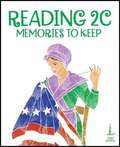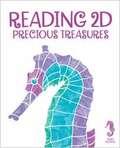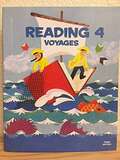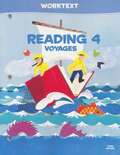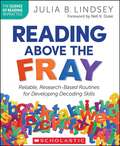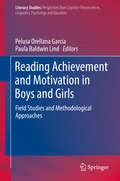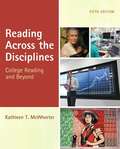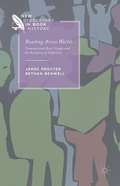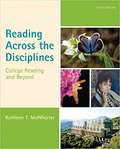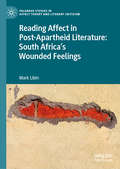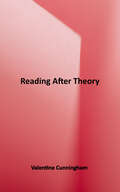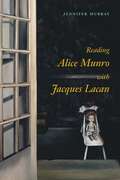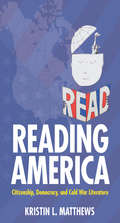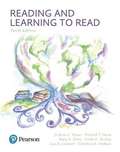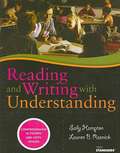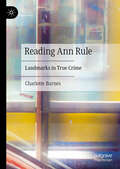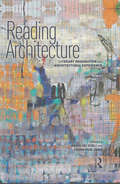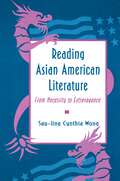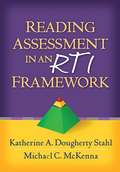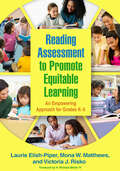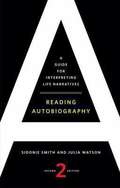- Table View
- List View
Reading 2C: Memories to Keep
by Bju PressFour reading texts provide interesting, developmentally appropriate selections from a variety of genres, such as realistic and historical fiction, fables, folktales, Bible accounts, biography, and drama as well as poetry. The reading selections provide a progression of difficulty in readability. Instruction is provided in phonics, oral reading, literary techniques, and comprehension. The selections are sequenced logically for readability and skill progression to help all students succeed.
Reading 2D: Precious Treasures
by Kathleen Hynicka Amy Schoneweis Dottie BuckleyThe reading selections provide a progression of difficulty in readability. Instruction is provided in phonics, oral reading, literary techniques, and comprehension. The selections are sequenced logically for readability and skill progression to help all students succeed.
Reading 4 Voyages Worktext
by Bju PressThis BJU Press Reading 4: Voyages Student Worktext is designed to be used alongside the Reading 4: Voyages Student Text, 3rd Edition (not-included and sold-separately). It provides opportunities for students to more deeply engage with the text through fun activities and exercises that review the vocabulary, skills, concepts, and literary elements from the reader. Students will study story structure, complete graphic organizers, complete map work, answer comprehension questions and personal reflection questions, finish word puzzles/games, and more.
Reading 5 Fantastic Voyage (Scott Foresman )
by Scott ForesmanScott Foresman Reading Fantastic Voyage
Reading 5: Quests
by Bju PressThis book gives students an opportunity to consider new perspectives and topics. This student edition provides grade-level appropriate selections representing a variety of genres and authors. Before, during, and after reading sections emphasize comprehension strategies and literary skills. Throughout the program, students are encouraged to approach each selection from a biblical worldview. -BJU Press
Reading Above the Fray: Reliable, Research-Based Routines for Developing Decoding Skills
by Julia B. LindseyDr. Julia B. Lindsey’s evidence-based routines help young readers decode words efficiently so they can spend more energy on comprehending—and enjoying—what they read! You’ll find: 1. Need-to-know essentials of how kids learn to read. 2. Principles of high-quality foundational skills instruction. 3. Teacher-approved instructional “swaps” to improve early reading instruction. Dr. Lindsey addresses content learning, culturally responsive practices, and the importance of engaging readers from the start.
Reading Achievement and Motivation in Boys and Girls: Field Studies And Methodological Approaches (Literacy Studies #15)
by Pelusa Orellana García Paula Baldwin LindThis volume links theoretical and instructional approaches on how reading is motivated and assessed, and examines the interrelationship between reading motivation and achievement among boys and girls in culturally and geographically different settings. Much of the research on children’s reading has focused on cognitive processes; however, reading is an activity that also requires interest and motivation. These attitudes are generally defined as readers’ affect toward reading and their consequence is that children with more positive attitudes are more motivated to read. Taking into account the variability that exists within the notion of gender and age, this volume aims to examine and scrutinize previous research on the topic, as well as test theories on how the different dimensions of reading motivation vary with gender, in relation to cultural issues, motivational constructs, such as engagement and classroom climate, the role of emotions, interests and attitudes towards reading, among others. The book will be of interest to researchers, educators, graduate students, and other professionals working in the area of literacy, reading motivation, reading achievement and gender differences.
Reading Across The Disciplines
by Kathleen T. McWhorterReading Across the Disciplineshas been a popular textbook with instructors whose students do not require an abundance of skill instruction and who teach college reading through the use of readings from across the disciplines. To prepare students for the expectations of higher education, Kathleen McWhorter uses high-interest readings from a variety of academic sources and provides concise reading skills with immediate practice for reinforcement. Discipline-specific reading skills offer tips for reading and learning within the particular discipline, so students learn content as well as strategy. Concise skill instruction with extensive practice. 13 academic disciplines represented through high-interest readings. Discipline-specific reading skills tips for reading and learning within the particular discipline. Active read skills instruction teaches students to approach reading as a process requiring involvement and response. 9 th - 12 th grade level reading courses where only concise skill instruction is needed, and with a process approach to reading. Instructors who teach college reading through the use of readings from across the disciplines.
Reading Across Worlds
by James Procter Bethan BenwellCombining sustained empirical analysis of reading group conversations with four case studies of classic and contemporary novels: Things Fall Apart, White Teeth, Brick Lane and Small Island, this book pursues what can be gained through a comparative approach to reading and readerships.
Reading Across the Disciplines: College Reading and Beyond
by Kathleen T. McWhorterReading Across the Disciplines provides reading strategies for a variety of academic disciplines (more than any other available text), concise skill instruction, and extensive practice to improve college-level reading and thinking skills. Reading Across the Disciplines is organized into three parts for flexibility and ease-of-use. Part One presents a brief skill introduction (in handbook format) introducing students to essential vocabulary, comprehension, critical reading, and reading rate skills. Part Two has twelve chapters, each containing three readings representative of a different academic discipline.
Reading Affect in Post-Apartheid Literature: South Africa's Wounded Feelings (Palgrave Studies in Affect Theory and Literary Criticism)
by Mark LibinThis book examines South Africa’s post-apartheid culture through the lens of affect theory in order to argue that the socio-political project of the “new” South Africa, best exemplified in their Truth and Reconciliation Commission Hearings, was fundamentally an affective, emotional project. Through the TRC hearings, which publicly broadcast the testimonies of both victims and perpetrators of gross human rights violations, the African National Congress government of South Africa, represented by Nelson Mandela and Archbishop Desmond Tutu, endeavoured to generate powerful emotions of contrition and sympathy in order to build an empathetic bond between white and black citizens, a bond referred to frequently by Tutu in terms of the African philosophy of interconnection: ubuntu. This book explores the representations of affect, and the challenges of generating ubuntu, through close readings of a variety of cultural products: novels, poetry, memoir, drama, documentary film and audio anthology.
Reading After Theory, 1st Edition
by Valentine CunninghamValentine Cunningham's controversial manifesto asks what will and should happen to reading in the post-theory era.
Reading Alice Munro with Jacques Lacan
by Jennifer MurrayIt is unlikely that Jacques Lacan and Alice Munro were ever aware of each other's work. Yet, because of Munro's intuitive grasp of the complexities of human subjectivity and her ability to articulate subtleties and ambiguities, her fiction shares many of the insights of Lacan's theoretical advancements of the same period. They are both concerned with bringing the obscure undercurrents of the psyche to light. Jennifer Murray's Reading Alice Munro with Jacques Lacan brings the works of the writer and the psychoanalyst into dialogue, offering innovative interpretations of a selection of Munro's stories. Approached from a Lacanian perspective, a close reading of Munro's texts reveals the libidinal energy at the heart of the stories and offers particular insight into aspects such as shame and humiliation - feelings that Munro presents with disconcerting acuity. Taking into account stories both of childhood and of adult experiences, Murray analyses the child's bewilderment as she confronts the incomprehensibility of parental injunctions and symbolic functions, while stories about women later in life speak of subjectivity in the field of relationships, where desire, and love are central concerns. Including extended reflections on fantasy, sublimation, persistence of purpose, transmission, love, and the roles of both paternal and maternal figures in Munro's work, Reading Alice Munro with Jacques Lacan also reshapes literary debate on feminine subjectivity and sexuality.
Reading Alice Munro with Jacques Lacan
by Jennifer MurrayHow Lacanian psychoanalysis illuminates the enigmas of human subjectivity at the heart of Alice Munro&’s fiction.
Reading America: Citizenship, Democracy, and Cold War Literature
by Kristin L. MatthewsDuring the Cold War, the editor of Time magazine declared, “A good citizen is a good reader.” As postwar euphoria faded, a wide variety of Americans turned to reading to understand their place in the changing world. Yet, what did it mean to be a good reader? And how did reading make you a good citizen? In Reading America, Kristin L. Matthews puts into conversation a range of political, educational, popular, and touchstone literary texts to demonstrate how Americans from across the political spectrum—including “great works” proponents, New Critics, civil rights leaders, postmodern theorists, neoconservatives, and multiculturalists—celebrated particular texts and advocated particular interpretive methods as they worked to make their vision of “America” a reality. She situates the fiction of J. D. Salinger, Ralph Ellison, Thomas Pynchon, John Barth, and Maxine Hong Kingston within these debates, illustrating how Cold War literature was not just an object of but also a vested participant in postwar efforts to define good reading and citizenship.
Reading And Learning To Read
by Richard Vacca Jo Anne L. Vacca Mary Gove Linda Burkey Lisa Lenhart Christine McKeonWith a focus on helping elementary reading teachers master teaching skills that will help all children succeed, Reading and Learning to Read includes philosophies, teaching strategies, and assessment practices reflecting and underscoring the concepts of evidence-based reading research and data-driven decision-making. The new 10th Edition is completely up to date; integrates the 2017 ILA Standards and Common Core State Standards (CCSS) initiative throughout the text; features the English Language Arts (ELA) standards respectively as they relate to the content in each chapter; and continues the focus on the applications of technology to literacy instruction, including new coverage of how transliteracies are transforming the way children comprehend and express their understanding of the world.
Reading And Writing With Understanding: Comprehension In Fourth And Fifth Grades
by Lauren B. Resnick Sally Hampton New Standards Organization StaffStudents in the upper elementary grades are ready for the rewards of reading and writing with increasing comprehension. But how can you prepare these 9- to 11-year-olds to meet—and beat—the challenges of increasingly complex texts? What do fourth and fifth graders need in order to grow as thoughtful readers and effective writers? Here you'll find Classroom ideas specially targeted for students at this critical stage of literacy development Dozens of examples of student performances Detailed commentaries on student work Through this rich portrait of readers engaged in making meaning, you'll learn how to set expectations for learning and hone your teaching to help students succeed in your classroom—and beyond.
Reading Ann Rule: Landmarks in True Crime
by Charlotte BarnesThis book studies the works of Ann Rule, aiming to shed light on her literary career as a largely uncelebrated True Crime writer, in addition to works by other lesser-known female True Crime writers including Alia Trabucco Zerán, Katherine Ellison and Caitlin Rother. Barnes argues that Rule&’s works should be regarded as landmarks in True Crime fiction. In so doing, she critically considers how Rules blended non-fiction and fiction to produce character- and plot-driven works through reliance on figurative language and varied but impactful narrative methodologies. Barnes also draws parallels between the success of iconic female writers, such as Agatha Christie and Dorothy L. Sayers, in the Golden Age of detective and crime fiction and considers the similarities, differences and connections between these genres.
Reading Architecture: Literary Imagination and Architectural Experience
by Angeliki Sioli Yoonchun JungWhy write instead of draw when it comes to architecture? Why rely on literary pieces instead of architectural treatises and writings when it comes to the of study buildings and urban environments? Why rely on literary techniques and accounts instead of architectural practices and analysis when it comes to academic research and educational projects? Why trust authors and writers instead of sociologists or scientists when it comes to planning for the future of cities? This book builds on the existing interdisciplinary bibliography on architecture and literature, but prioritizes literature’s capacity to talk about the lived experience of place and the premise that literary language can often express the inexpressible. It sheds light on the importance of a literary instead of a pictorial imagination for architects and it looks into four contemporary architectural subjects through a wide variety of literary works. Drawing on novels that engage cities from around the world, the book reveals aspects of urban space to which other means of architectural representation are blind. Whether through novels that employ historical buildings or sites interpreted through specific literary methods, it suggests a range of methodologies for contemporary architectural academic research. By exploring the power of narrative language in conveying the experience of lived space, it discusses its potential for architectural design and pedagogy. Questioning the massive architectural production of today’s globalized capital-driven world, it turns to literature for ways to understand, resist or suggest alternative paths for architectural practice. Despite literature’s fictional character, the essays of this volume reveal true dimensions of and for places beyond their historical, social and political reality; dimensions of utmost importance for architects, urban planners, historians and theoreticians nowadays.
Reading Asian American Literature: From Necessity to Extravagance
by Sau-ling Cynthia WongA recent explosion of publishing activity by a wide range of talented writers has placed Asian American literature in the limelight. As the field of Asian American literary studies gains increasing recognition, however, questions of misreading and appropriation inevitably arise. How is the growing body of Asian American works to be read? What holds them together to constitute a tradition? What distinguishes this tradition from the "mainstream" canon and other "minority" literatures? In the first comprehensive book on Asian American literature since Elaine Kim's ground-breaking 1982 volume, Sau-ling Wong addresses these issues and explores their implications for the multiculturalist agenda. Wong does so by establishing the "intertextuality" of Asian American literature through the study of four motifs--food and eating, the Doppelg,nger figure, mobility, and play--in their multiple sociohistorical contexts. Occurring across ethnic subgroup, gender, class, generational, and historical boundaries, these motifs resonate with each other in distinctly Asian American patterns that universalistic theories cannot uncover. Two rhetorical figures from Maxine Hong Kingston's The Woman Warrior, "Necessity" and "Extravagance," further unify this original, wide-ranging investigation. Authors studied include Carlos Bulosan, Frank Chin, Ashley Sheun Dunn, David Henry Hwang, Lonny Kaneko, Maxine Hong Kingston, Joy Kogawa, David Wong Louie, Darrell Lum, Wing Tek Lum, Toshio Mori, Bharati Mukherjee, Fae Myenne Ng, Bienvenido Santos, Monica Sone, Amy Tan, Yoshiko Uchida, Shawn Wong, Hisaye Yamamoto, and Wakako Yamauchi.
Reading Assessment in an RTI Framework
by Michael C. Mckenna Katherine A. StahlFrom leading experts, this indispensable resource presents a practical model for conducting reading assessments for screening, diagnosis, and progress monitoring in each of the three tiers of response to intervention (RTI). K-8 teachers and school personnel are guided to use norm-referenced, informal, and curriculum-based measures to assess key components of reading development and make informed choices about instruction. The book describes how to survey existing assessment practices in a school and craft a systematic plan for improvement; reproducible tools include a 10-page RTI Assessment Audit that can be downloaded and printed in a convenient 8 1/2" x 11" size. See also Assessment for Reading Instruction, Second Edition, which explains the fundamentals of assessment and provides essential hands-on tools.
Reading Assessment to Promote Equitable Learning: An Empowering Approach for Grades K-5
by Victoria J. Risko Laurie Elish-Piper Mona W. MatthewsMany standard reading assessment approaches fail to capture the strengths and needs of students from diverse sociocultural, linguistic, and academic backgrounds. From expert authors, this book guides educators in planning and conducting meaningful, equitable assessments that empower K–5 teachers and students, inform responsive instruction, and help to guard against bias. The book's holistic view of reading encompasses areas from text comprehension and constrained skills to building trusting relationships and promoting students&’ agency. Twenty-eight assessment strategies are explained in step-by-step detail, including helpful implementation examples and 32 reproducible forms that teachers can download and print in a convenient 8 1/2" x 11" size.
Reading Autobiography Now: An Updated Guide for Interpreting Life Narratives, Third Edition
by Sidonie Smith Julia WatsonA user-friendly guide to reading, writing, and theorizing autobiographical texts and practices for students, scholars, and practitioners of life narrative The boom in autobiographical narratives continues apace. It now encompasses a global spectrum of texts and practices in such media as graphic memoir, auto-photography, performance and plastic arts, film and video, and online platforms. Reading Autobiography Now offers both a critical engagement with life narrative in historical perspective and a theoretical framework for interpreting texts and practices in this wide-ranging field. Hailed upon its initial publication as &“the Whole Earth Catalog of autobiography studies,&” this essential book has been updated, reorganized, and expanded in scope to serve as an accessible and contemporary guide for scholars, students, and practitioners. Sidonie Smith and Julia Watson explore definitions of life narrative, probe issues of subjectivity, and outline salient features of autobiographical acts and practices. In this updated edition, they address emergent topics such as autotheory, autofiction, and autoethnography; expand the discussions of identity, relationality, and agency; and introduce new material on autobiographical archives and the profusion of &“I&”s in contemporary works. Smith and Watson also provide a helpful toolkit of strategies for reading life narrative and an extensive glossary of mini-essays analyzing key theoretical concepts and dozens of autobiographical genres. An indispensable exploration of this expansive, transnational, multimedia field, Reading Autobiography Now meticulously unpacks the heterogeneous modes of life narratives through which people tell their stories, from traditional memoirs and trauma narratives to collaborative life narrative and autobiographical comics.
Reading Autobiography: A Guide for Interpreting Life Narratives, Second Edition
by Sidonie Smith Julia WatsonWith the memoir boom, life storytelling has become ubiquitous and emerged as a distinct field of study. Reading Autobiography, originally published in 2001, was the first comprehensive critical introduction to life writing in all its forms. Widely adopted for undergraduate and graduate-level courses, it is an essential guide for students and scholars reading and interpreting autobiographical texts and methods across the humanities, social sciences, and visual and performing arts. Thoroughly updated, the second edition of Reading Autobiography is the most complete assessment of life narrative in its myriad forms. It lays out a sophisticated, theoretical approach to life writing and the components of autobiographical acts, including memory, experience, identity, embodiment, space, and agency. Sidonie Smith and Julia Watson explore these components, review the history of life writing and the foundations of autobiographical subjectivity, and provide a toolkit for working with twenty-three key concepts. Their survey of innovative forms of life writing, such as autographics and installation self-portraiture, charts recent shifts in autobiographical practice. Especially useful for courses are the appendices: a glossary covering dozens of distinct genres of life writing, proposals for group and classroom projects, and an extensive bibliography.
